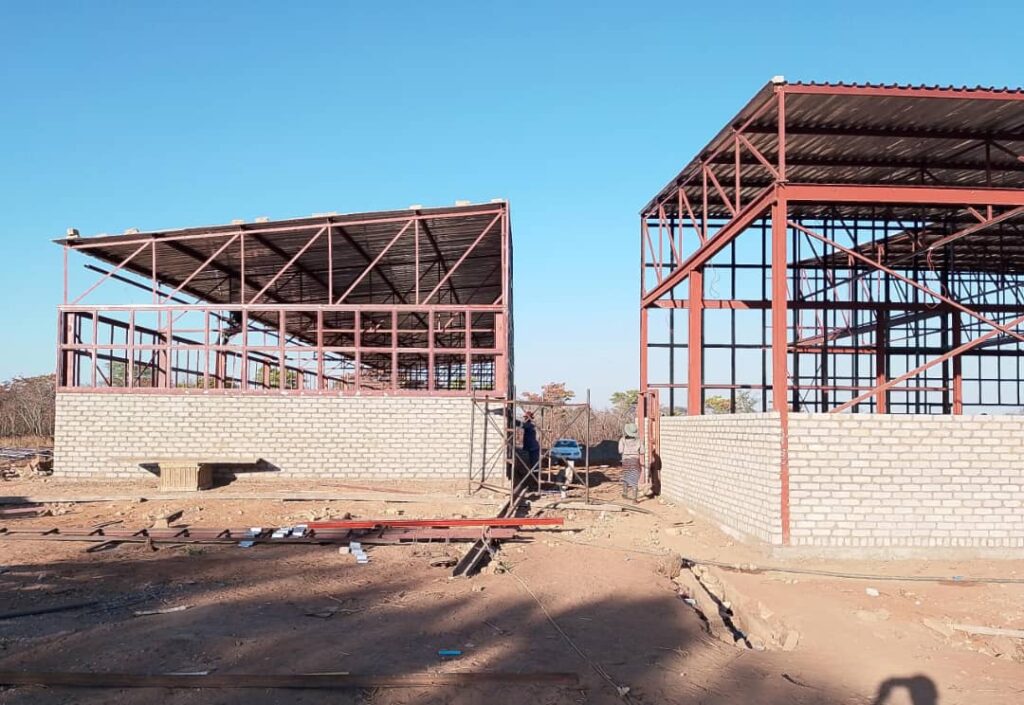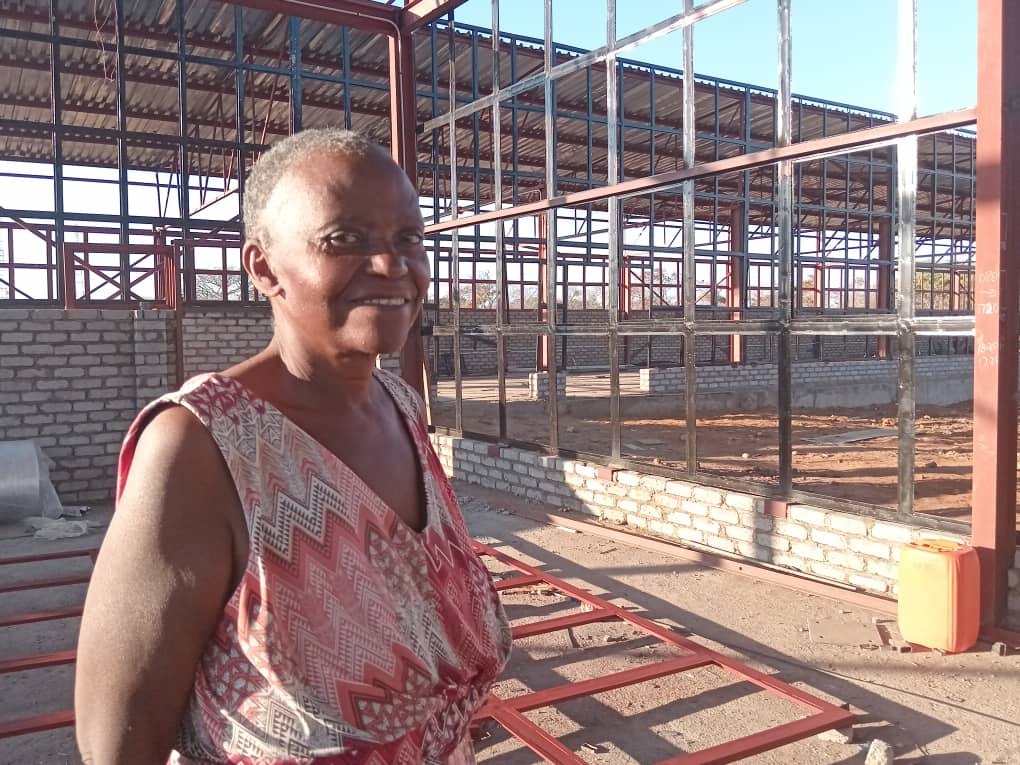By Delicious Mathuthu
Gweru veteran educator and entrepreneur, Mrs Stella Mabandla is pioneering the establishment of a new elite state-of-the-art Vocational Training Centre (VTC) targeting regional and international students.
The centre, to be dubbed Mnyami VTC, aims to equip young people with technical vocational skills, foster self-sufficiency and contribute to the nation’s development strategy and government’s Vision 2030.
Kwedu News took time to interact with Mrs Mabandla and visited the site where the school is under construction along the Harare highway just a few kilometers outside Gweru where she revealed that her passion and journey in education spans over four decades, beginning with her training at Gweru Teachers College in 1976, before it was renamed Mkoba Teachers College.
Mrs Mabandla says she has taught in various settings, including Alaska, Dangamvura, lectured at tertiary institutions such as ZinTech and Mkoba Teachers College.
Now at 66 years, her experience and passion for education have, yet again, driven her to establish Mnyami VTC.
“I am 66 years old, and I intend to quit at 70 and let the children take over,” she said.
“I started my training in 1976, at Gweru Teachers College (GTC) at the time doing Home Economics, and completed in 1978.
“In 1979 I started teaching in Alaska, it was a time of war then, then finally I went to Dangamvura.
“In 1980 I had my first baby, came back to Harare and taught for two to three years then I was promoted to tertiary education as a lecturer.
” So the VTC idea is partly inspired by being a teacher by profession, retired. I want to leave behind a legacy,” she said.
She then took education as a business and, as a family, built Lingfield Academy, which they however later sold due to operational and family problems.
“Then in 2014/15 we built a school which is now called Lingfield Advent School, but we sold the school and then I thought to myself the next best thing is to come up with a VTC.
“I am also a hands-on person, I also do landscaping, I am trained in a lot of technical areas, and that’s what inspired me to build this school,” Mrs Mabandla said.
Mnyami VTC will cost an estimated US$5 million upon completion.
Her commitment to education extends beyond the classroom, with plans for a cluster village and a gated community on the campus, which will span over 100 hectares.
The initial construction will see an administration block, a classroom block, a theatre, and dormitories for students.
The structures will be mainly made of steel and glass, with limited brick and mortar.
“First we are building an administration block, a three classroom block and one massive theatre, or auditorium, with options to divide into small classrooms.
“So we are going to have walls that can fold inside so that whenever we want mass lectures we can then fold the doors and have a large auditorium, either a lecture room or working area, whatever they are going to be doing,” Mrs Mabandla said.
She said 90 percent of the needed materials for the school are already on the ground.
The institution will offer a range of technical courses which will prepare students for the global market, she says.
After her exposure in the diaspora, Mrs Mabandla envisions Mnyami VTC as a hub for international students, promoting cultural exchange and skill sharing.
Partnerships with global polytechnic colleges will enable Mnyami students to pursue opportunities worldwide, she says.
“We have lived in the UK for almost two decades and we are fairly travelled.
“My first born and only daughter is in the United States of America (USA), and my youngest son is in London.
“So there are certain things that you start learning, how people in other nations operate and one thing is that over there I noticed that whenever they are doing projects they are not doing it because they are a family but thinking nationally, doing it for the nation, not a limited concept for just personal uses,” she said.
“So we want to come up with a state of the art institution, this project is not a family project but national in nature, better yet, a SADC project or even global.”
Despite initial setbacks, including paperwork and material acquisition issues, Mrs Mabandla says she persevered, driven by her vision, with support from Midlands Minister for Provincial Affairs and Devolution, Honourable Owen Ncube, who ensured its continuation after threats to shut down its construction.
Mrs Mabandla says she is not alone in the project as she is being supported by her children in the diaspora.
“When I say we as I speak I mean my family. I have three children who are part of this project, actually when you are looking at Lingfield Advent School you are looking at the mind of my son Prince, the first born.
“He is the architect of the whole project, you are also looking at the mind of my daughter Prisca, you are also looking at the mind of my son Ntokozo.
“So we work together as a family, and each one has a certain input,” she said.
“I am just going to be doing the structures and then they are going to take the entire project and finish it off,” she added.
The Mabandlas’ investment in education infrastructure comes as renowned Zimbabwean international businessman, Dr. Nigel Chanakira, is challenging Zimbabweans in the diaspora to invest back in their home country.
Dr. Chanakira believes the exposure and skills gained abroad should be used to improve the economy and people’s lives back home.
Having invested in more than five African countries, he says Zimbabweans should not give up on their country despite its macroeconomic challenges, with several investment opportunities in health, roads, infrastructure, rail, urban transport, power generation, solar, and education.
Meanwhile, Youth Empowerment, Development and Vocational
Training Minister, Tino Machakaire, quoted in the media, says the Zimbabwe government is on a drive to uplift youths by redirecting efforts to promote vocational training in the country.
Machakaire says VTCs provide opportunities for young people to gain hands-on experience in areas like textiles, woodworking, and farming, with the aim to motivate them to develop marketable skills and reduce the likelihood of falling into destructive habits born from aimlessness.





